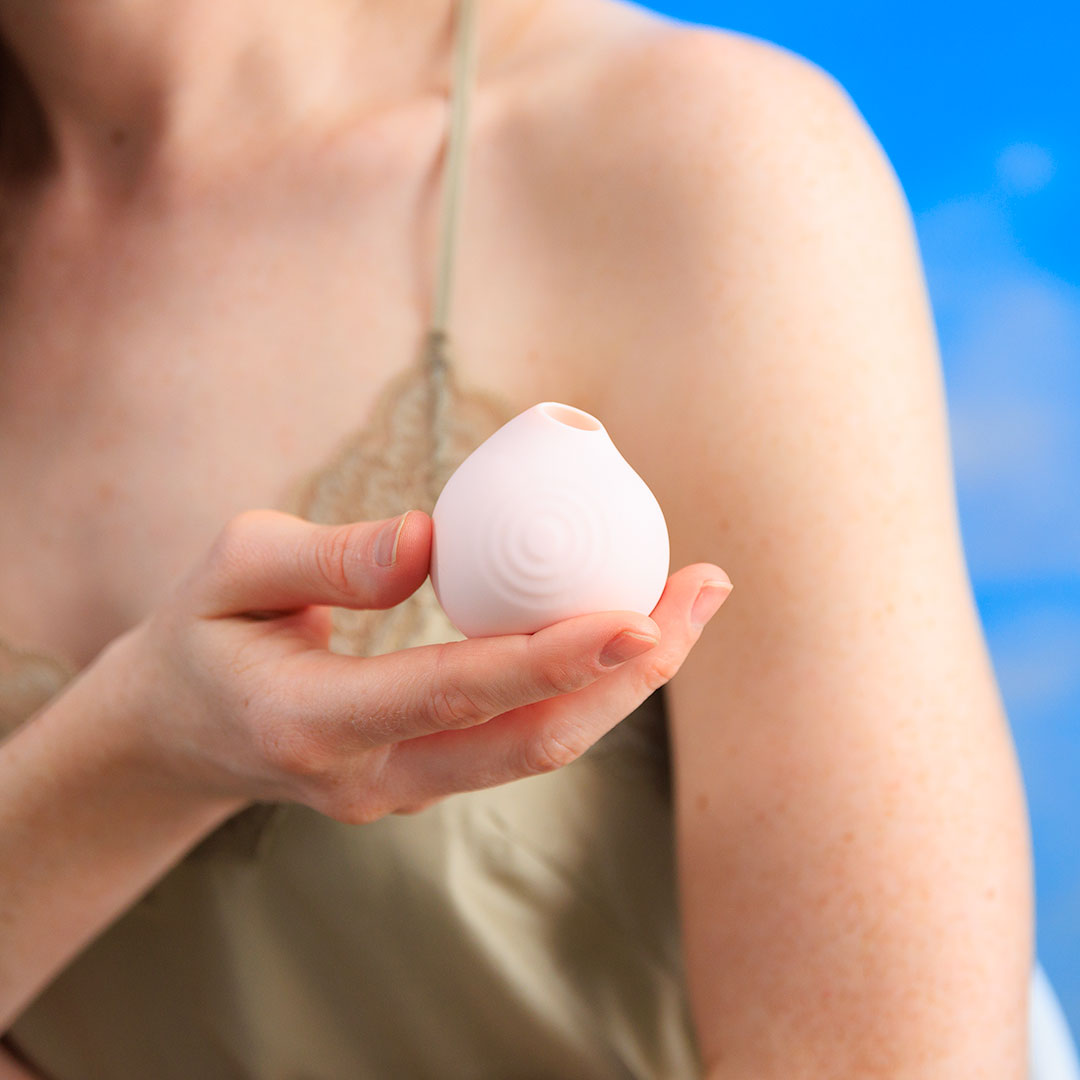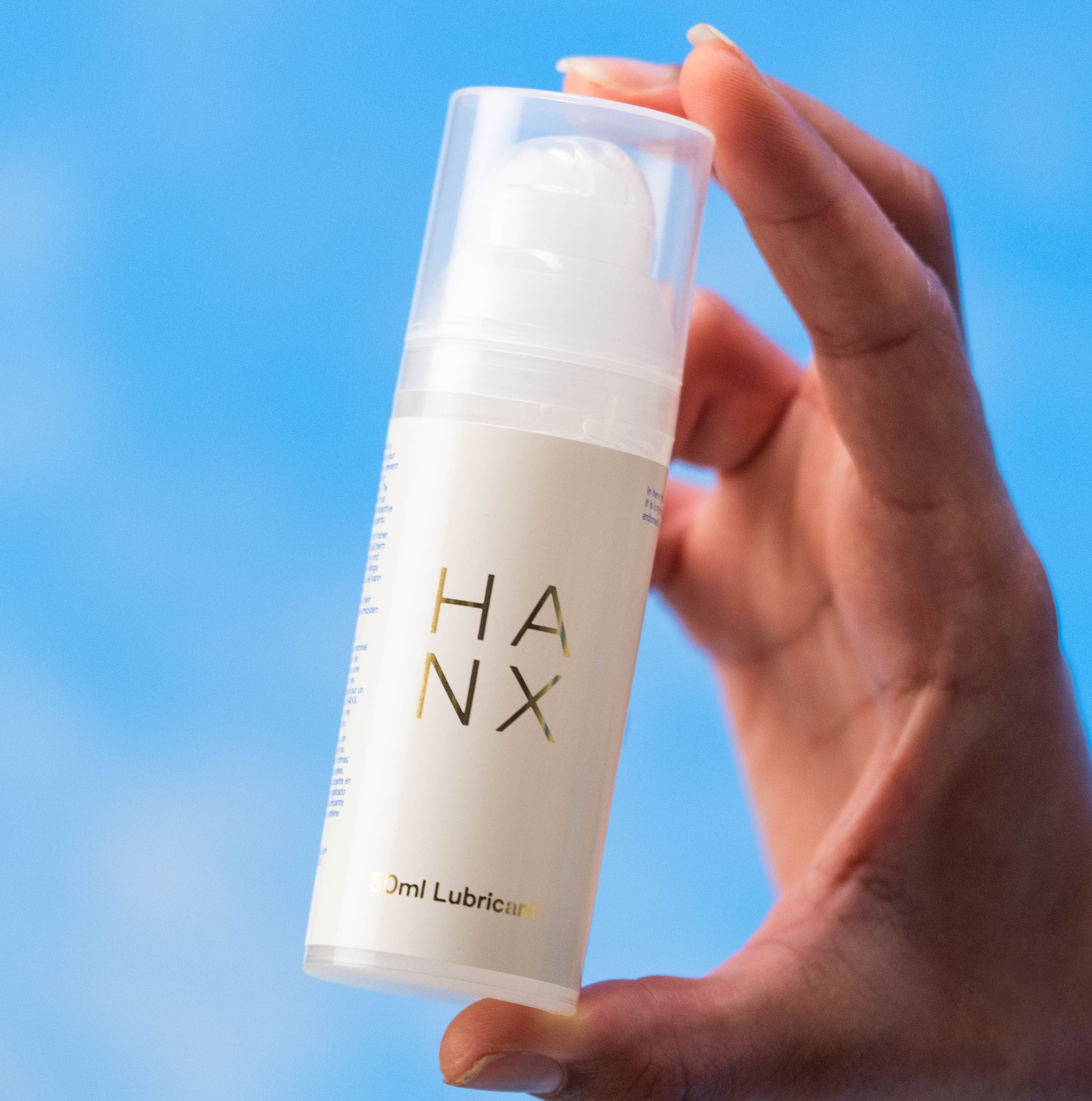Clio Wood Answers Your Top Questions About Postpartum Sex
Post-partum sex isn’t talked about enough - and friend of HANX, Clio Wood, wants to change that. A women’s health advocate and author passionate about championing better sex for mums, she’s joined us for an intimate, honest workshop for new mums navigating pleasure post-baby. Now, we’ve teamed up together to create the ultimate gift set for the new parent in your life. Featuring her must-read guide, Get Your Mojo Back, Sex, Pleasure and Intimacy After Birth, plus our award-winning condoms and lube, the Post-Partum Pleasure Bundle is the ultimate toolkit for getting mojo back in motherhood - and Clio really knows what she’s talking about. To celebrate the launch of the Post-Partum Pleasure Bundle, she answers most-asked mum questions direct from our HANX community…
***************************
Let’s be real, sex after birth isn’t a walk in a park. Like most things in motherhood, we’re expected to know what we’re doing without any real guidance. And when it isn’t going quite as planned, we don’t really know how to fix it.
And that’s where I come in. I experienced painful sex (alongside severe postnatal depression following birth trauma) after my first daughter was born, and it took me years to figure out what the problem was and how to experience pleasurable intimacy again. It really impacted my marriage and my self-confidence. I also speak to dozens of women who experience other sexual wellbeing issues. Like vaginal dryness, not wanting to have sex, feeling the ick with their partner, lack of vaginal sensation, other pelvic floor issues, anxiety over sex or their bodies, or struggling with the fact that their partner wants to do the bedroom dance more than they do. These are all things I can help with - and why HANX is such a great partner for me.
Your top three questions about motherhood sex? Let’s get into it.
Q: How long after birth can you have sex?
This is different for everyone. Technically (and I really do mean technically) it’s six weeks post-birth. That’s when you get the sign-off from your GP at the 6-8 week postnatal check up and get asked what contraceptive you want to use. But despite this implication that you should be ready and willing to go, it doesn’t mean you have to jump straight back in the sack. If you do, great - and if it’s earlier than 6 weeks and you feel fine, that’s also great too - just go slow and make sure you’re not feeling any pain or signs that something isn’t ready.
If you want to wait (particularly if you’ve had a c-section, when guidance is more like 12 weeks anyway) that is totally cool and you shouldn’t be pressured into it by a raring to go partner. If they’re ready and you’re not, you’re not going to enjoy it and that’s no good for anyone. Make sure you’ve communicated with your other half, though - no-one likes a brush-off with no explanation and it will make it easier for you to work through together.
Q: Why am I feeling low to no desire for sex?
There are SO many reasons for this. First, I want you to bear in mind that lack of sleep, high stress levels, and mental health issues (such as depression and anxiety) all contribute to low libido levels. Perhaps it’s no surprise then that a new mum existing on a few hours sleep per night, struggling to manage a new baby and possibly experiencing baby blues, postnatal depression or anxiety might not be in quite the right headspace for a bit of va va voom.
Secondly, desire in cis-gender women usually takes time to grow. When our heads are full of other stuff (the mental load is real, people) sex is bottom of the to-do list and it might take up to an hour for it to make it to the top of the list. For most women, only once you feel desire mentally, does your body respond physically. The problem in motherhood is that we usually lack time too - so we’re never quite in the right zone for sex. There are loads of things you can do to help (you can read more in my book, Get Your Mojo Back) but even knowing that this is part of the cause can help.
Q: How can I prepare physically for the first time I have sex after a baby?
Your body has likely changed a lot. From weight gain and stretch marks, to wider hips and bigger, milkier boobs; or even (weirdly) bigger feet! You might have scarring from a c-section or episiotomy. These are all things to be mindful of: you’re different now (that isn’t a bad thing!) and that may take some adjustment.
For many new, and not-so-new, mums I advise a little time getting to know your own body again. Look at yourself naked in the mirror, run your hands over your scars in the shower, rub moisturiser into your stretch marks; but also take time to masturbate and explore your body yourself. What turns you on might have changed: you don’t want that to take you by surprise, and it can be really helpful to communicate your findings with your other half too!
If you’re breastfeeding, you might want to wear a bra and breast pads during sex as milk spray is real! Oxytocin, one of the hormones present with sex, is also the hormone which prompts milk let-down. And depending on how sensitive your breasts are, you could also ask your partner to avoid them for a while.
Vaginal dryness is also a real problem for lots of mums (particularly if breastfeeding) so remember to lube up! Lube is not a dirty word and HANX’s lube is a real game changer. It’s made from natural ingredients so it won’t irritate your sensitive vaginal or vulva tissue either - it’s important we treat our amazing lady bits well!
Want more?
- Treat yourself to our Post-Partum Pleasure Bundle to help reignite that mojo.
- Designed by Dr Sarah during her first pregnancy, try our all-natural supplement for expectant and new parents.
- Struggling to choose the right contraception postpartum? Check out our Naked Truths blog post: choosing the right contraceptive for postpartum sex.






















